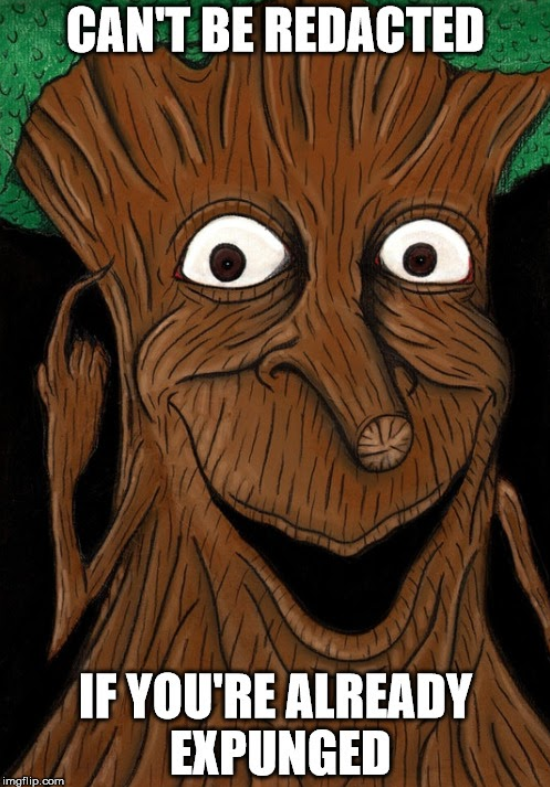Interviews
The SCP Foundation Discusses History, The Future And Even Some Of Their Favorite Memes
f you’ve ever found yourself enthralled with creepy internet stories late at night during the last decade or so, chances are you’ve stumbled upon an SCP at one point or another. SCPs, like the infamous “Shy Guy,” first appeared back in 2007 after 4chan user Moto42 shared the creepypasta titled, “SCP-173.” Since then, the SCP Foundation has undergone numerous changes and seen a steady rise in popularity. Through the help of a dedicated international community, staff, and years of hard work, the wiki is now the largest online collaborative writing project in history. No stranger to the world of memes, we decided to reach out to the folks at the Foundation for a little interview. Modern_Erasmus, one of the wiki’s administrators and the head of internet outreach, accepted our offer, divulging the full history behind SCP, highlights over the years, personal favorite entries he recommends, and even a few of his very own meme creations from the SCP universe.

Q: Thanks for giving us the chance to interview the SCP Foundation. Would you like to start out by giving us some info on the Foundation’s background? How did it form, and what did its mission grow to be?
A: Thanks for having us! The SCP Foundation wiki is the largest online collaborative writing project in history, with over 10,000 short stories by over 1,600 authors. The stories are set in the “New Weird” genre and revolve around the efforts of a fictional organization called the “Foundation” to contain phenomena it deems to be anomalous. This can range from ghosts and monsters to complex events that defy the laws of physics. Uniquely, these stories are written in the style of a technical document as a framing device.
SCP started in 2007 when a 4chan user who goes by the names Moto42 and USS Walrus wrote SCP-173 as a creepypasta on the paranormal-focused /x/ board. SCP-173 was revolutionary as a creepypasta because it didn’t focus on visceral body horror or a “gotcha” moment. Instead, it contained a remarkable vision of a universe where the paranormal was both real and reduced to a bureaucratic consideration by an unknown organization. The story proved to be very popular, and six months later, a repost of the story sparked a series of threads that lead to the creation of the first SCP wiki and the first independent SCP community. A little over 12 years later, and the community has grown and evolved into millions of readers, writers, and fans from all over the world.

Q: For those unfamiliar, how’d the name “SCP” come to be, and what’s the story behind it?
A: SCP comes from the title and subject of the short story that originated the project: SCP-173. Each one of the anomalies whose stories form the core of our project is referred to as an SCP, which stands for both “Special Containment Procedures” and “Secure Contain Protect,” the latter of which is the in-universe motto of the Foundation.
Q: What were the early days like with SCP, and how has it evolved over time all these years later? Was it an instant success, or did it take years of hard work to get where it is today?
A: Originally, SCP was much less organized due to being a small number of hobbyists writing chiefly for themselves and each other. However, those hobbyists -- including such notable authors and staff members as DrGears, FritzWillie, and Clef -- worked hard to establish rules and traditions that allowed the community to thrive. As an example, SCP originally had a “no deletions policy,” which resulted in many stories being illegible or lazy pop culture references. The community then created a system of voting that allowed all readers to decide whether an article should stay or be deleted, which has led to a strong tradition of quality control that remains to this day. For anyone more curious about our history, you can check out our History of the Universe essay series that chronicles the history of the SCP writing project and community.
SCP definitely became what it is today due to the hard work of staff, authors, and content creators all doing their part. For the first few years, it was a fairly small and niche community, but the efforts of the above in maintaining and expanding the community and its creations have led to our present state of notoriety. And we’ll all keep working hard to keep making it bigger, better, and more well-known. In the words of 173’s author Moto42, “I am constantly impressed and surprised by the content the SCP-files community is creating. I honestly thought SCP-173 would be forgotten in a week, and it would have been if others had not taken the idea and run with it. I just cleared a spot of land and planted a tree, you guys have built a multi-acre garden of horrors around it and it always lifts my spirits when I read it.”
One group in particular that deserves more credit than they often get are translators. Thanks to their tireless efforts, we have 13 different international wikis that cover a wide range of languages. In particular, our Chinese, Japanese, and Russian communities and fan bases are all very large, and they could not exist without the translator’s efforts.

Q: SCP-173 was the first object written for the project back in 2007. How many entries are currently in the database now?
A: At the time of writing, there are 5,274 different SCP articles on the wiki. In addition, there are thousands more traditional short stories set in the SCP universe (referred to as “Tales”), comedic parody articles called -Js, and document articles written in the style of the Foundation’s rival organizations (known as Group of Interest Formats). It varies greatly, but in a typical month, I’d estimate around 40 to 70 successful SCP articles are written, alongside another 30 or 40 other stories. Anyone can join the site and post a story, but whether it stays or is deleted depends on the community’s votes or downvotes on the article. However, we do offer guides, essays, and volunteer critiquers to help people improve their prospective works.
Q: There are several famous SCPs like “Radical Larry” or “Shy Guy,” but what are some of your personal favorites in the database?
A: There are a great many SCPs that I love, but a few of my all-time favorites include:

SCP-2747 -- A brilliant story with strong nihilistic themes. Minmin managed to flawlessly mimic the styles of a number of famous creators in order to deliver this haunting message of the implications of lost works.

SCP-2935 -- A horror epic set in a dead world. Djkaktus has many great stories, but this one riveted me like no other.
SCP-3444 -- A bit of a strange one that is sadly very underrated due to a mix of extreme length and simple bad luck. It’s essentially an eight-act play that manages to tell emotionally resonating stories about a number of characters while relentlessly parodying common tropes of musicals. Tufto wrote a story that is wholly unique and utterly magnificent.
Q: Could you give us a shortlist of SCPs that you think everyone should read?
A: I recommend everyone to check out our User-Curated Lists page, which has lists on a number of subjects to help people find articles they’ll enjoy. The centerpiece of this page is our ambassador articles section, which endeavors to be an ideal set of articles to introduce people to both the setting as a whole and the different types of stories within it. Beyond that, I’d say that it’s less about articles everyone should read and more about connecting people to particular content they’ll enjoy. New Weird is a very broad and diverse genre that can include everything from straight Lovecraftian horror to biting satire, to surprisingly wholesome character stories. Different people enjoy different parts of it, and one beauty of SCP is that our collection is so big at this point that no matter your preference, there are enough stories featuring it to satisfy you indefinitely.
Q: What about some that you think are overhyped? Are there any that you think deserve more attention?
A: I wouldn’t necessarily say the most popular or iconic articles are overhyped, but it is certainly true that there’s a regrettable gulf between the popularity of a handful of articles compared to thousands of other good stories -- many of which are just as interesting. With more than 5,000 SCPs, almost every page deserves more attention. Try checking out our Underread and Underrated page to the random SCP button in order to give some of these stories some love! Tales also generally get less attention than they deserve, which is a shame since there are some wonderful storylines and one-shots that form some of the best SCP stories. Our Canon Hub has a number of these storylines, including everything from period pieces to apocalyptic clashes between the Foundation and its foes.

Q: What do you think is the secret to writing a quality SCP entry?
A: This is a question that gets asked pretty often, but ultimately there isn’t one secret to success. SCP articles are just short stories in an unusual format, so success depends on the same competencies that normal creative writing requires. Pacing, plotting, setup and payoff, characterization, etc. The best way to improve your ability to write SCPs is to improve your creative writing skills in general. Whether via online resources or academia, by learning and practicing these skills you’ll become able to write successful SCPs. In terms of SCP-specific tips, learning how to properly write with clinical tone is an important skill not stressed in most creative writing. Also, it’s important to both not rush yourself to be successful and to not be discouraged if your article is unsuccessful. SCP’s quality control level is very low for professional writing but very high for internet writing, so some people used to the “anything-goes” nature of sites like AO3 or WordPress blogs can, unfortunately, feel intimidated by the barrier.
Q: If any SCP escaped containment, which one would be the worst, and how would we recapture it?
A: Probably SCP-3078, because if there’s one thing KYM has proven, it’s that once a dank meme is out there, it cannot be stopped.

Q: What’s the SCP community/following like? What sorts of things do they do to contribute and make the site what it is today?
A: Off-site content creators and fans are a huge part of the SCP community. YouTubers like Volgun, SCPIllustrated, Forlorn Foundry, and TheSherm all produce wonderful audio or visual adaptations of SCP stories. Game developers like Regalis or Affray studios have allowed fans to experience SCP in the fun and immersive manner unique to video games. Artists like Sunnyclockwork and CelestialFang bring the SCP setting to life via beautiful paintings and digital pieces. The fan communities in places like r/scp, r/scpdeclassified, and r/dankmemesfromsite19 provide crucial community engagement and activity that ensures the future success of the project. We’re blessed with an active and largely positive fan base. All of these people (and many, many more who I can’t mention for brevity’s sake) bring in new fans, some of whom become writers that create new stories, which in turn inspire more community creations. I’m one of the website’s administrators now, but a few years back, I was just an r/scp subscriber who found the community by chance thanks to the efforts of those mentioned above. Together, we all worked hard to make SCP into what it is, and we work every day to keep it great.

Q: SCP is clearly one of the most successful collaborative writing efforts online. Have any similar projects or competitors caught your eye?
A: There’s nothing quite like SCP in terms of scale or level of success, but there are a few with which interesting parallels can be drawn. Orion’s Arm was one of the first large online collaborative writing projects, established all the way back in 2000. OA is an expansive series of stories set in a hard science fiction setting. In a lot of ways, it’s the grandfather of sites like ours, but despite still running to this day, it was never able to cultivate a long-term audience of significant size. Our main counterpart early in our site’s lifespan was The Holders, which was a somewhat similar series about paranormal events and objects that became popular around the same time as we did. Unlike us, the series lost steam and never attracted the level of attention from content creators that allowed us to become as notable as we have.
Most projects of this kind never manage to attract a significant user base in the first place, which speaks both to the luck and the level of hard work that has allowed SCP to thrive. One major contributor to our success is that we intentionally keep a very loose canon that allows writers to create whatever stories they want, even if said stories don’t fit with some others. Both OA and Holders kept very rigid canons that limited what people could write and continuously added new limitations with every new story that could not be contradicted by a future story. Eventually, such an environment becomes difficult to write in due to so many creative ideas and scenarios being blocked.
Q: In May 2019, Andrey Duksin claimed he was the owner of the SCP Foundation trademark. What transpired with that, and how are things going with the court case currently?
A: That is a very long story, but the short version is that a Russian man obtained an illegitimate trademark to the SCP name and logo in the Russian Federation. He then used said trademark to threaten and extort other SCP fans and merchandise sellers in the region, and in response, we’ve begun legal action against him. As I’m sure you can imagine, an international IP lawsuit is both very complex and very lengthy, so we don’t have too much news about the status of the case. We had a preliminary hearing with the Russian Federal Antimonopoly Service in early March, but the follow-up hearing has been delayed due to the coronavirus. When we have news, we’ll be sure to update the fan base on the subject. We owe them (and Markiplier!) everything for contributing a whopping $160,000 to our legal defense fund, which we will use to protect the Russian community from Duksin, as well as all SCP communities globally from any future legal threats.

Two important things to emphasize are that what Duksin did would not be possible almost anywhere in the world, and only occurred due to the state of IP abuse within Russia. Even in China, an attempt by a company to trademark SCP was unceremoniously rejected without the SCP Licensing Team’s intervention. The other is that SCP is licensed under Creative Commons Share-alike 3.0, a permissive content license that extends the right to create derivative works to third parties, so long as they identify the creator of the original source and release their resultant work under the same license. CC-BY-SA is what has allowed for the creation and flourishing of the many SCP audio adaptations, games, and the like. Duksin has completely violated this license, which constitutes copyright infringement.
Q: How did SCP Containment Breach affect the popularity of the wiki with memes and other aspects spreading around the internet? Do you think the game was a success?
A: SCP would never have become what it is today without Containment Breach. CB brought in an unprecedented amount of attention and new users, which, in turn, caused a snowball effect of popularity that in some ways continues to this day. People saw their friends or favorite YouTubers play CB and then discovered the wiki after playing it themselves or just googling it. Many of the best authors and staff members we’ve ever had discovered SCP directly or indirectly because of Containment Breach. I’ve never personally played CB, but from the positive effect it has had on the community as a whole, I absolutely believe it was a success. Regalis and his creation changed the entire course of SCP’s history.
Q: There are numerous memes referencing popular SCPs and their unique properties, like how seeing SCP-096 in a meme will result in death. Do you think memes play a significant role in the Foundation gaining more mainstream attention? How so?
A: Absolutely! Memes can play a huge role in introducing newcomers to a topic, and the SCP memes from places like r/dankmemesfromsite19, r/thechurchofpeanut, or r/scp’s Meme Monday are often seen by many prospective fans on r/all or r/popular. In turn, these memes and other original creations get spread through Twitter, Facebook, Discord, and other corners of the internet. Each time more new people see them, there exists a chance they’ll look into the subject and wind up becoming an SCP fan. On a personal level, I’m very impressed at how successful many fan-created SCP meme groups have become. The internet is littered with small and inactive meme communities for fandoms and franchises far more popular than us, but our community nonetheless has cultivated multiple large and thriving sub-communities surrounding memes.

Q: Do you think SCP-3625 could be responsible for making these shitposts?
A: If SCP-3635 (an anomalous AI obsessed with creating memes in a vain and nonsensical attempt to destroy civilization) were real, not only would it be responsible for those images, it would be responsible for at least 97 percent of KYM’s content and probably steal your job. I can only imagine it would make an awful interviewer. Luckily for both of us, it’s fictional.
Q: What about other memes or some of those on the r/DankMemesFromSite19 subreddit? Do you have any favorite SCP-related memes? Any you’ve made personally?
A: I’m not sure I have any favorites per-say, but in recent times, I was heartened by the many memes supporting us against Duksin’s extortion attempts. As one of the licensing staff dealing with that situation, knowing we had the support and unity of the community on this issue meant the world to me. I’d also like to shout out the slate of memes spawned by MrKlay’s breathtaking SCP-096 short film, all of which were hilarious.
I’ve made a couple of low effort ones over the years on whims. Here is one based on SCP-2571, an excellent horror article written by TheGreatHippo. A piece of fanart by Charcoalman was posted to r/scp, whereupon several people noticed that it had an unintentional resemblance to the Roll Safe meme due to the tree pointing towards its head. That inspired me to quickly whip up this monstrosity:

Please forgive me.
Q: Do you have any favorite moments from your time with the SCP Foundation? Anything particularly weird happen?
A: I have plenty of great memories from my time with this website, but two stick out to me. The first would be my team and I winning the 2018 Doomsday Contest with our series Apotheosis. The many entries into Doomcon resulted in some of the best writing and storylines our website has ever had, and we put everything we had into our own team’s stories. My involvement here was definitely my biggest accomplishment from a writing standpoint, and the close victory was pure euphoria. The other would have to be being chosen to become one of the website’s administrators, a relatively recent development that still leaves me feeling honored by the trust placed in me. Weird perhaps wouldn’t be the right word, but small unexpected events happen all the time. There’s never a dull day when you’re dealing with all the logistical and creative challenges that come with a website like this.
Q: So what’s the future for the SCP Foundation? Any big plans on the horizon or things fans should know about?
A: We recently finished our landmark SCP-5000 Contest, which produced some of our best stories in years and kickstarted the beginning of the ongoing SCP Series VI, so keep an eye on the series page for all the new additions to the SCP universe.

Q: Any final word or additional info you'd like to add?
A: Thanks again for the interview opportunity, and thanks to everyone who decided to read this interview as well! You can keep updated on SCP news via our social media accounts (including our Reddit, Twitter, Tumblr, Facebook, DeviantArt, and Instagram pages) and, of course, scp-wiki.net. We all hope you keep enjoying our stories and the memes based on them for many years to come!

Comments ( 20 )
Sorry, but you must activate your account to post a comment.
Please check your email for your activation code.